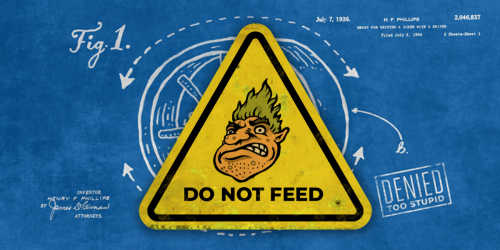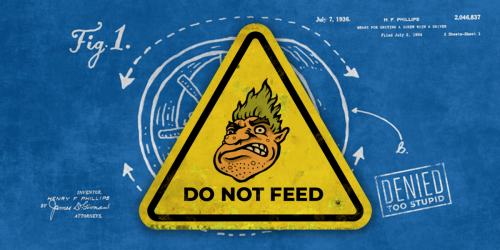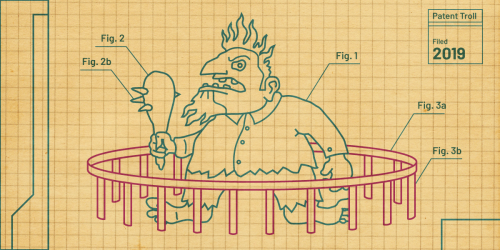In a victory for open source and common sense, a federal judge has thrown out a patent suit against the Linux-based operating system on the grounds that the patent claims a mathematical algorithm. The order is encouraging both for the result and because the judge ruled at the beginning of the case on a motion to dismiss. This means that the defendant didn’t have to waste a fortune fighting this bad patent. We hope the case will be a model for future litigation involving abstract software patents.
The litigation began when the patent troll Uniloc sued Rackspace for providing Linux–based servers. Red Hat, which supplies Linux to Rackspace, stepped in to provide the defense. The patent claims “a method for processing floating-point numbers.” If that sounds like math, that’s because it is. Floating point number systems are a method of representing approximations of real numbers (they can be helpful for computing because it is impossible to store numbers with infinite precision). The patent claimed a four-step process of doing calculations with floating point numbers.
Rackspace moved for the case to be dismissed on the grounds that the patent was impermissibly abstract—in other words, because it claims a mathematical idea. Judge Davis, who sits in the patent-friendly Eastern District of Texas, agreed. He explained that “ the conversion of floating-point numbers has applications across fields as diverse as science, math, communications, security, graphics, and games.” So allowing such a patent would “imped[e] the onward march of science.”
This is exactly right. In fact, it gets to the heart of what is so wrong with abstract software patents. Unfortunately, equally absurd patents have been upheld in other cases. We will continue to push courts to reject abstract patents—as the Supreme Court has said merely adding a "conventional step" (such as performing a calculation on a computer) should not make an otherwise unpatentable idea patentable. These issues are before the Federal Circuit right now in CLS Bank v. Alice Corp. where we hope the court makes it clear once and for all that ideas that are otherwise abstract cannot be patented simply because they are executed on the Internet or in a computer system.
Yesterday’s decision is a setback for Uniloc and a big victory for open source. Unfortunately, Uniloc has many other patents, and it remains a prolific patent troll. (It filed eleven cases last Friday alone.) We've written about Uniloc before—it has targeted all kinds of technology companies, from Microsoft to small developers. We need fundamental reform to deal with the epidemic of patent trolls and bad software patents. Please check out EFF's proposals for reform at Defend Innovation.








